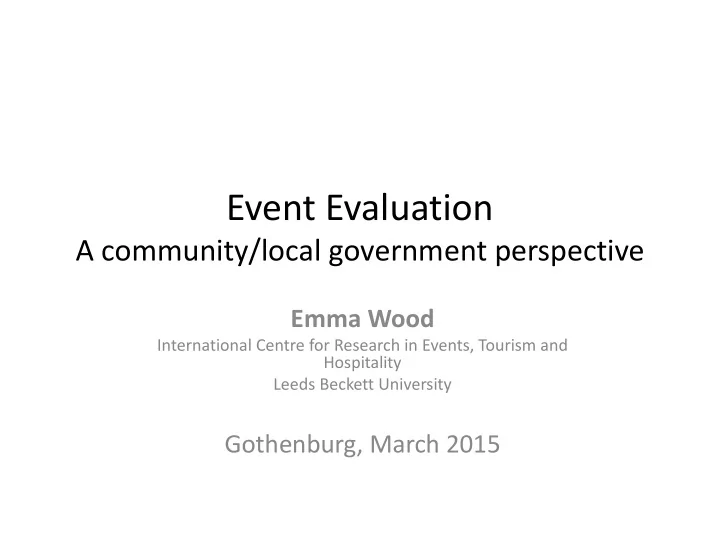

Event Evaluation A community/local government perspective Emma Wood International Centre for Research in Events, Tourism and Hospitality Leeds Beckett University Gothenburg, March 2015
past to present • quantitative to qualitative to mixed • one off to multi-event, longitudinal • economic to social to personal • standardised to tailored to mixed • reality to rhetoric • use to advocacy
current thoughts • tailored to objectives and resources • allow for comparison with other interventions aimed at achieving same objectives • longitudinal vital • involve stakeholders in a more meaningful way to encourage ‘use’ • recognise all influences on the effect being evaluated • greater focus on attribution
current challenges • seeing the value in evaluation • seeing the value in qualitative • robust replicable methodologies • limited accuracy of surveys “Tour de France boost £50m • designing engaging, greater than anticipated” meaningful surveys • reliable crowd counts • over emphasis on headline figures • bad big samples • isolated evaluations
future challenges • increasing funder demands • increasing emphasis on PR outcomes (advocacy) • more austerity – need for greater evidence and less money to get it • rhetoric is all about social but reality is still about ROI in economic terms • greater focus on insights rather than measures needed, action research • developing holistic evaluation of the effect ie evaluate ‘all’ the causes “ The austerity and re-balancing agenda effectively removes the mandate to weigh up long-run cost benefit decisions”
in summary • we need to be less precious about always proving the value of events • focus more on understanding how events might or might not contribute to wider social, behaviour change goals • requires longitudinal insight research which includes more than events • takes a holistic view with focus on effects and attribution even if beyond events
Recommend
More recommend